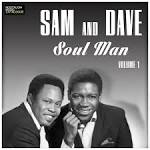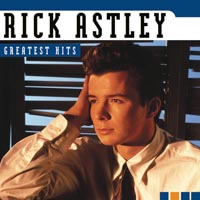2023-03-13
How Music Can Help You Achieve More
Music has always been a big part of our existence, following each step of our history and setting the right mood for every epoch. It’s hard to imagine the swing and the dancing of the 1920s and 30s without Cole Porter, or the obsession over the Beatles without their first songs in the Cavern club.
People talk about musical preferences all the time, listen to the hot 100, argue which U2 album is better or become friends forever once they realise that they have found someone to attend the Rock am Ring with. Music can change our mindset or our mood, once we put on our headphones and immerse into our personalised library on Spotify or Apple Music.
Music is more than just a hobby though, we use it as a tool for many purposes: calm mantras for meditation and relaxation, upbeat songs for productivity and work-outs, or catchy jingles and ads used by companies to sell products. Is there a way we can utilise music to benefit our everyday situations? Yes, there is.
Pace and concentration
The subject of listening to a particular genre of music in the gym has been studied by psychologists numerous times with definitive conclusions drawn. According to this research, music distracts us from pain and tension and therefore significantly improves productivity. It comes from dopamine, the happiness hormone that is produced during a gym session.
It has also been proven that music helps to synchronise our body movements, improve metabolism and relieve us from stress. Legendary American actor and bodybuilder Arnold Schwarzenegger always preferred rhythmical songs from the band Kasabian for his work-outs. However, any genre works if it boosts your energy and keeps you going for another 15 minutes on the treadmill.
Personal Preference Trumps Science
Although research suggests that upbeat music with a higher tempo is most suited for improving work output, personal preference is a significant factor. Anyone who has worked in an office with a radio will understand, having fought many battles with people who want to change the station to something they prefer. Some people find classical music or soft jazz can help them stay relaxed, which in turn helps them concentrate more and work better. Whilst others prefer the scientifically proven, up beat music instead. This variance in preference can be seen in poker players too. A recent article by Martin Harris explored the musical preferences of poker players, noting that a player's choice in music is determined by a number of factors, such as their playing style, taste in music and overall personality.
Memory and Medicine
We can have strong associations between music and a particular period of our lives, a product, or even a person. Something as simple as scrolling down an old playlist can bring back some memories from different stages, whether it is our twentieth birthday or the best friend’s wedding.
These association tactics are widely used in advertisements, as the memory of customers are often subconsciously implanted with short slogans, popular brands and catchy songs. After listening to it multiple times on the radio, TV or the Internet, consumers begin to associate a particular sound with a brand, even if they’re not listening to an ad. Great examples of this are adverts that have used catchy songs, like McDonald’s use of the Justin Timberlake song I'm lovin' it.
Just like music can influence our memory, it can affect us physically as well. It can be calming and distracting from pain, leading to its frequent use in hospitals. According to BBC News, music helped patients with respiratory problems breathe better, especially after the mechanical ventilation. Classical music proved to be helpful in the research, and scientists are currently working on further studies in order to understand which genres can be used for different kinds of treatment. It is also reported that music can be used as a part of therapy to treat conditions like depression. Most people have a piece of music or a genre that they enjoy a lot, but for some music is an important hobby that consumes their lives. But music can go beyond this and become a useful tool in helping us to achieve more.
People talk about musical preferences all the time, listen to the hot 100, argue which U2 album is better or become friends forever once they realise that they have found someone to attend the Rock am Ring with. Music can change our mindset or our mood, once we put on our headphones and immerse into our personalised library on Spotify or Apple Music.
Music is more than just a hobby though, we use it as a tool for many purposes: calm mantras for meditation and relaxation, upbeat songs for productivity and work-outs, or catchy jingles and ads used by companies to sell products. Is there a way we can utilise music to benefit our everyday situations? Yes, there is.
Pace and concentration
The subject of listening to a particular genre of music in the gym has been studied by psychologists numerous times with definitive conclusions drawn. According to this research, music distracts us from pain and tension and therefore significantly improves productivity. It comes from dopamine, the happiness hormone that is produced during a gym session.
It has also been proven that music helps to synchronise our body movements, improve metabolism and relieve us from stress. Legendary American actor and bodybuilder Arnold Schwarzenegger always preferred rhythmical songs from the band Kasabian for his work-outs. However, any genre works if it boosts your energy and keeps you going for another 15 minutes on the treadmill.
Personal Preference Trumps Science
Although research suggests that upbeat music with a higher tempo is most suited for improving work output, personal preference is a significant factor. Anyone who has worked in an office with a radio will understand, having fought many battles with people who want to change the station to something they prefer. Some people find classical music or soft jazz can help them stay relaxed, which in turn helps them concentrate more and work better. Whilst others prefer the scientifically proven, up beat music instead. This variance in preference can be seen in poker players too. A recent article by Martin Harris explored the musical preferences of poker players, noting that a player's choice in music is determined by a number of factors, such as their playing style, taste in music and overall personality.
Memory and Medicine
We can have strong associations between music and a particular period of our lives, a product, or even a person. Something as simple as scrolling down an old playlist can bring back some memories from different stages, whether it is our twentieth birthday or the best friend’s wedding.
These association tactics are widely used in advertisements, as the memory of customers are often subconsciously implanted with short slogans, popular brands and catchy songs. After listening to it multiple times on the radio, TV or the Internet, consumers begin to associate a particular sound with a brand, even if they’re not listening to an ad. Great examples of this are adverts that have used catchy songs, like McDonald’s use of the Justin Timberlake song I'm lovin' it.
Just like music can influence our memory, it can affect us physically as well. It can be calming and distracting from pain, leading to its frequent use in hospitals. According to BBC News, music helped patients with respiratory problems breathe better, especially after the mechanical ventilation. Classical music proved to be helpful in the research, and scientists are currently working on further studies in order to understand which genres can be used for different kinds of treatment. It is also reported that music can be used as a part of therapy to treat conditions like depression. Most people have a piece of music or a genre that they enjoy a lot, but for some music is an important hobby that consumes their lives. But music can go beyond this and become a useful tool in helping us to achieve more.
Tag: hot 100, new music, music therapy, top hits, memory
2024-04-10
Getting Hooked on Cibo Matto's Unique Sound
Music may sound like an abstract art, but with Cibo Matto’s signature tunes you can never mistake it for anything else. With their indulgent fusion of rock, hip-hop and jazz elements, the band has been dishing out unique hybrids of avant-garde and popular music since its formation in 1994...read more
2022-01-01
An Honest Look at Dance Gavin Dance: The Praise and Criticism of Their Music
Whether you’re a fan of the band or not, Dance Gavin Dance has become a mainstay in the modern world of alternative music. Comprised of vocalists Tilian Pearson and Jon Mess, guitarists Will Swan and Jason Richardson, bassist Tim Feerick, and drummer Matthew Mingus – this post-hardcore/experimental rock group has been pushing boundaries since their debut album Downtown Battle Mountain was released in 2007...read more
2022-11-01
The Brilliant Musical Biography of Sam & Dave
Music has always been a universal language to bond people together in unison. It transcends all boundaries and leaves indelible imprints on our souls...read more
2022-01-01
Unpacking Rick Astley: The Good and The Bad
At first glance, Rick Astley may seem like any other generic pop artist. His 1986 hit “Never Gonna Give You Up” made him one of the most recognizable names in music, and his bubbly personality has endeared him to millions of fans around the globe...read more
2022-11-01
Celldweller: A Musical Biography of an Electronic Music Pioneer
Celldweller is a modern-day pioneer of electronic rock, an artist who has pushed the boundaries of the genre and created a unique sound all his own. His career has spanned over two decades, during which he has released several acclaimed albums and garnered a dedicated fanbase of music listeners around the world...read more
SUGGESTED PLAYLISTS








